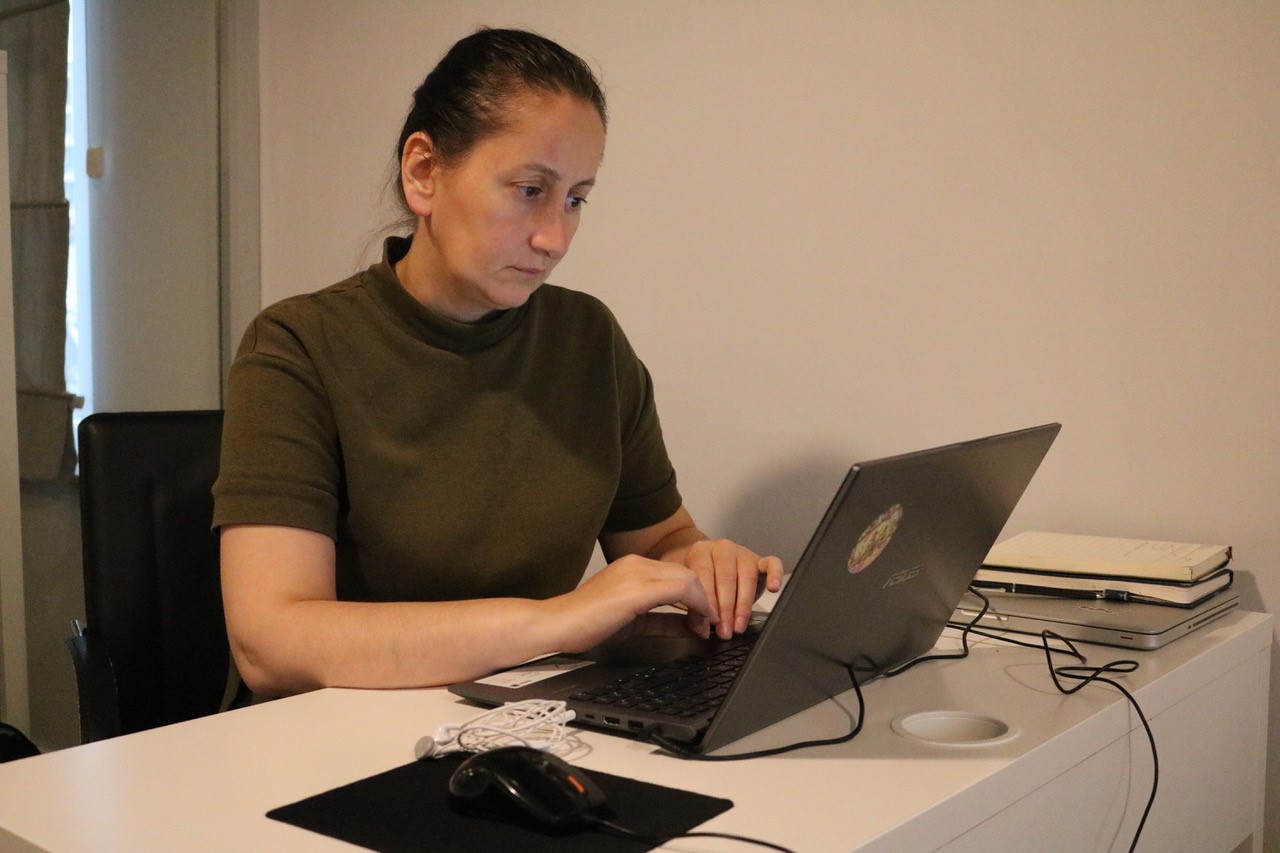Mzia was detained after placing a sticker calling for a nationwide strike, in solidarity with a colleague who had been arrested for the same act. She was later released, arrested again and sentenced to 2 years in prison for slapping the Batumi police chief – after he spat at her and verbally abused her. She remains behind bars, while the police chief has faced no repercussions. The appeal of Mzia Amaghlobeli began on 11 November.
Mzia’s case is emblematic of a wider campaign of harassment, intimidation, and repression against independent, critical voices in Georgia not seen since the Soviet occupation.
For the first time since Georgia gained independence in 1991, the country is experiencing a surge in political prisoners. Students, journalists, doctors, artists, and politicians – all who protest are jailed for the same, spurious reasons. And the crackdown spares no one: recently, a 71-year-old internally displaced person from Abkhazia was detained for participating in a protest.
According to the Center for Media and Information Safety (CMIS), at least 434 cases of harassment against journalists and media outlets, including at least 122 cases of physical violence, have been reported over the past year.
Following the October 2024 parliamentary elections, marred by fraud, intimidation, and violence, this wave of repression represents Georgian Dream’s desperate attempt to suppress protests that have persisted for 349 days in a row.
The demonstrations began almost exactly a year ago, after the ruling Georgian Dream party suspended talks on Georgia joining the European Union, a country where over 80% of the population supports EU membership.
Since then, the Georgian Dream has passed numerous laws to restrict and criminalise protest, including fast-tracking legislation on 16 October 2025 that allows administrative detention for acts such as participating in demonstrations or covering one’s face. In a further escalation, the party has also petitioned the Constitutional Court to ban the three main opposition forces in the country. At the same time, criminal prosecution was launched against eight key opposition leaders.
‘The purpose of these laws is clear – they target ordinary citizens and undermine their basic human rights’, says Secretary General Berit Lindeman.
Over 100 protesters have been detained on administrative charges, including blocking roads or wearing face coverings.
The Georgian Dream must heed the clear demand of Georgian society – to stay on the path toward the European Union.
‘They must repeal laws that restrict fundamental freedoms, release all individuals detained for exercising their rights to freedom of expression and peaceful assembly, and ensure that those responsible for intimidating or abusing peaceful protesters are investigated and held accountable,’ says Lindeman.
Amid escalating repressions, there is some hope left – civic resistance continues, and people, especially a younger generation, refuse to give up.
